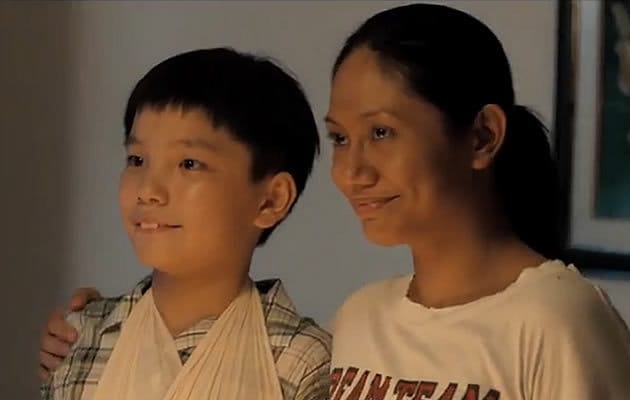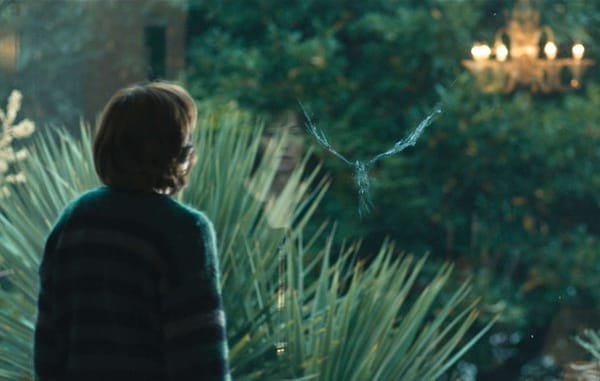Camera d’Or winner
Ilo Ilo, Anthony Chen’s touching, naturalistic portrayal of family life in 1990s Singapore, has finally touched down in the UK, nearly a whole year after winning critical acclaim at the Cannes Film Festival.

Ilo Ilo
Director: Anthony Chen
Writer: Anthony Chen
Starring: Koh Jia Ler, Angeli Bayani, Tian Wen Chen, Yann Yann Yeo, Jo Kukathas
Runtime: 99 minutes
Certification: 12A
Ilo Ilo, Anthony Chen’s touching, naturalistic portrayal of family life in 1990s Singapore, has finally touched down in the UK, nearly a whole year after winning critical acclaim at the Cannes Film Festival. Incredibly accomplished for a first feature, Chen’s possession of the Camera d’Or prize for the best debut feature at Cannes puts him in the exalted company of directors such as Jim Jarmusch, Steve McQueen, and Miranda July; a sure indication that he is one to watch in the development of East Asian cinema.
Ilo Ilo revolves around a single family unit in Singapore, who are battered by the 1997 Financial Crisis; with one horrific child wreaking havoc at home, and another on the way, parents Teck and Hwee Leng (portrayed by Chen Tianwen and Yeo Yann Yann respectively) decide that a live-in maid is needed to help cope with the strain. This heralds the arrival of Theresa (Angeli Bayani), a Filipino migrant who has left her year-old infant behind in order to carve out a better life in this tiger economy; her presence acts as a focus for the film’s drama, which delicately explores the relationships between parent & child, mother & father, and maid & family.
It doesn’t take long for Chen to reveal to us that the family is in trouble; Teck has lost his job as a salesman and, in a move that is reminiscent of Kurosawa’s Tokyo Sonata, struggles to hide the fact from his family. To complicate matters, he has also secretly taken up smoking, adding a quite literal flame to this hotbed of tensions. Meanwhile Hwee Leng is keeping secrets of her own; stuck in a dull office, typing up pink slips for her colleagues, she has resorted to shelling out what little money they have remaining on a self-help scheme which turns out to be a scam. With his parents’ attention focussed elsewhere, their child, Jiale (Koh Jia Leh) has begun acting out at both school and home. Initially caustic towards Theresa, their relationship softens after she covers for him in front of the parents, and they begin to develop a quasi-mother-son bond. Jiale begins to refer to her as ‘Auntie Terry’, a move which infuriated Hwee Leng to no end.
Dramatic, but never hammy, the main actors bring a sense of naturalism to their performances, making the film completely believable. While the characters themselves do not change much during the course of the film - there are no major epiphanies or revelations - their relationships with one another evolve slowly, as do our perceptions of them. Special mention must go to Koh Jia Leh, who manages to make Jiale seem - and this is an understatement - like a complete little shit, but still manages to evoke sympathy from the audience. Bayani also puts in a star turn as Theresa, who copes with estrangement from her child and homeland with extreme dignity and stoicism.
While the themes explored in the film seem pretty universal, I am sure that there were moments of the film that - while lost on me - would ring true to a Singaporean audience. The view of Singapore that Chen gives is not a pretty one, and seems miles away from the hyperactive metropolis it is presented as today. Working with cinematographer Benoit Soler, Chen paints a picture of Singapore in muted greys and beige, a reflection of the state of the nation following the 1997 crash, which placed many middle-class families under enormous pressure. But through this doom and gloom, Chen conjures up numerous beautiful images, tempering the bittersweet nature of the feature.
In Ilo Ilo, Chen uses the camera to make a comment on society; he takes the example of a single family, and uses it to explore the values and fears of a whole nation. While it never descends into crude satire, Ilo Ilo seems to me to be a critique of the neoliberalist, hyper-capitalist society that existed during the late-90s. The main tensions in the film - outside the relationship between Theresa and her employers - revolve around money: obtaining it, giving it, using it as a social currency. Wealth and greed form the central catalyst, driving forward the plot, but Chen never makes the characters seem like anything other than victims of circumstance, something which is extremely difficult to achieve.
While the basic premise may sound simple, scratch beneath the surface of Ilo Ilo, and you’ll find that it is much more than the sum of its parts. Chen has deftly crafted this domestic drama with a lightness of touch, and created an impressive first feature. Ilo Ilo is certainly a film to watch, and Anthony Chen is a director to keep your eye on.








